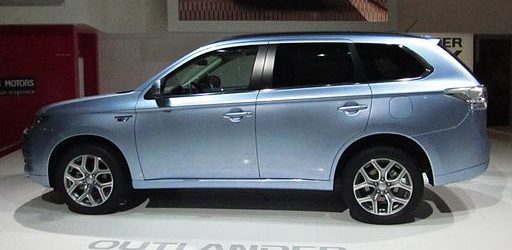 Mitsubishi is postponing the sale of the Outlander plug-in hybrid car in the U.S. to the year 2015. Initially, the official release of the car in the United States market was planned for this year. The main reason for the postponement is that Lithium Energy Japan (LEJ) has not supplied adequate batteries for Mitsubishi. Mitsubishi ought to have learned a lesson from the strong-arm tactics employed by Tesla on a similar issue.
Mitsubishi is postponing the sale of the Outlander plug-in hybrid car in the U.S. to the year 2015. Initially, the official release of the car in the United States market was planned for this year. The main reason for the postponement is that Lithium Energy Japan (LEJ) has not supplied adequate batteries for Mitsubishi. Mitsubishi ought to have learned a lesson from the strong-arm tactics employed by Tesla on a similar issue.
Some time back, the CEO of Tesla Motors, Elon Musk warned that battery supply issues could compromise Model S sales. Musk said that lithium-ion cell production was to be one of the greatest challenges. Hence, there was the need to have numerous batteries. Musk claimed that Tesla Motors’ issues were more of production related and not the generation of demand. The whole supply chain should move in cadence for there to be a growth in production. In the case of Tesla Motors, 7,000 cells are required by each car. Musk was quick to point out that the company’s demand could be more than the whole laptop industry by a significant margin if or when Model E is in production and the vehicle sales amount to 500,000 per annum. In October last year, Musk said that he has plans of negotiating with other suppliers of batteries so that they could supplement battery supply.
Panasonic was interviewed concerning the comments made by Musk and the company said that it was committed to the supply of batteries to support Tesla Motors’ business. Panasonic’s goal was to provide a total of three-hundred million battery cells by the year 2014. This is according to Jeff Howell, the Panasonic battery executive. In October, Panasonic and Tesla made an announcement that there had been an update and expansion of its earlier agreement. The battery maker has plans to supply approximately two-billion battery cells in the next four years.
Meanwhile, the supplier of ill-fated battery packs in Boeing Dreamliners was GS Yuasa. GS Yuasa also supplied batteries to hybrid and electric cars from Mitsubishi and Honda. A new Japanese factory was opened in 2012 so that it could partly supply an annual amount of fifteen million battery cells to Honda. The factory was also meant to support the new Outlander plug-in and fifty thousand Mitsubishi i-MiEVs. Currently, Mitsubishi can produce about sixty thousand Outlander plug-in cars per year. This has increased from thirty thousand in the year 2013. However, the U.S rollout would be delayed because of inadequate battery supply. Mitsubishi has plans of increasing its battery suppliers.
